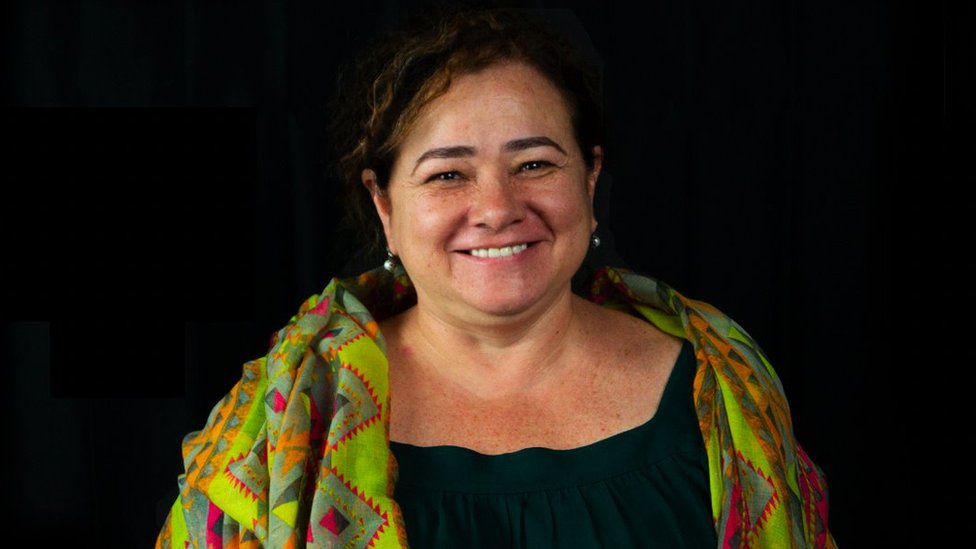The state of exception installed in The Savior to stop a wave of violence more than a year ago, it ended up being replicated in the neighboring Hondurasincluding the suspension of constitutional guarantees that accompanies this measure.
After hundreds of opponents in Nicaragua spent years in prison, in Guatemala judges, activists and independent journalists began to be persecuted and detained, who in many cases ended up going into exile outside the country.
It is the case of Claudia Peace and Peace, who at the time was the first woman to hold the position of attorney general in Guatemala.
She, like many other experts, warns of the dangerous trend towards greater authoritarianism that many governments in Central America are taking, a region where civil wars and military governments are still very recent.
A recognized activist and benchmark in the area, Paz y Paz worked for more than 25 years to strengthen justice and human rights in her country, which earned her candidate for the Nobel Peace Prize in 2013.
Later, he would form part of the Interdisciplinary Groups of Independent Experts of Ayotzinapa (Mexico) and Nicaragua, after the outbreak of the social and political crisis in 2018.
In this interview with BBC Mundo, the current director of the Program for Central America and Mexico of the Center for Justice and International Law (CEJIL) points out that The health of Central American democracy is going through a critical moment in the face of the general indifference of the international community.
How do you analyze the situation in the Central American countries in terms of respect for democratic institutions and human rights by their governments?
Undoubtedly, in Central America we have witnessed a resurgence of authoritarianism in recent years and the trends are clearly contrary to strengthening the rule of law or the enforcement of human rights.
Clearly, in most countries there have been efforts to subdue the Judiciary and the independence of powers.
What are the clearest examples of this trend?
They are many. In El Salvador, it began with the arbitrary dismissal of the attorney general and the Constitutional Chamber, and now we see it in the current state of emergency with illegal detentions and people who have died in prison.
In Guatemala there has been a very clear criminalization and persecution of judges, prosecutors and independent journalists. And now that we are approaching the June elections, we have seen the suppression of candidates as happened in the last elections in Nicaragua.
There, in Nicaragua, what happened was a systematic cooptation of the institutional framework and the subjugation of the other powers of the State until the consolidation of the current dictatorial regime headed by Daniel Ortega and Rosario Murillo.
But this happened for many years, although the international community did not wake up until the April 2018 crisis due to the massiveness and brutality of police violence.
And in Honduras, where the current government’s discourse is much more respectful of human rights, the state of exception has also been adopted as an easy way out… but it is definitely not the effective response to reduce insecurity because it is not sustainable.
And neither is it free of attacks against human rights defenders.
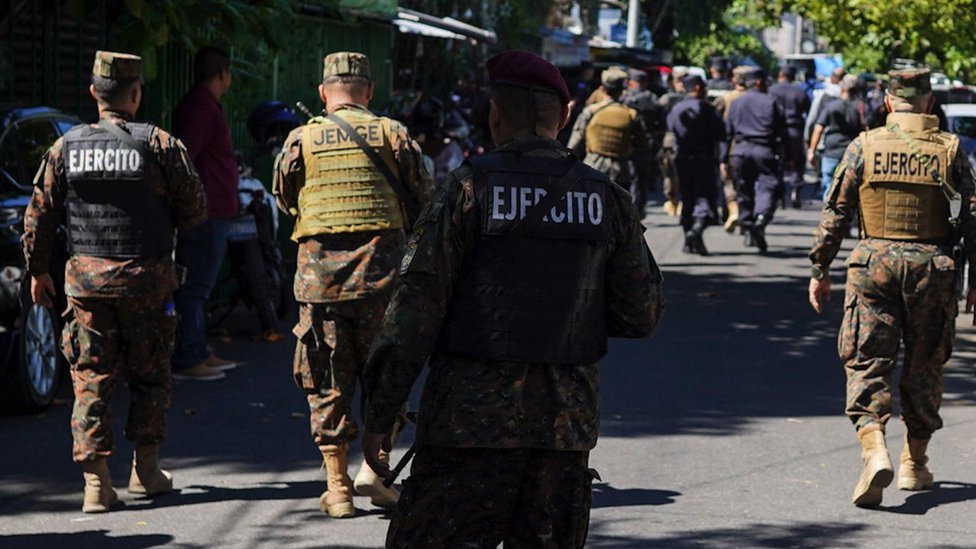
And what is this resurgence of authoritarianism due to?
Despite the fact that after the civil wars that took place in several of these countries, peace agreements were signed, there were historical debts that were never addressed, such as exclusion, racism… and this was causing an erosion of confidence in democracy.
These agreements failed to crystallize the transformative promises they contemplated, especially the socioeconomic ones.
This means that, today, governments like that of (Nayib) Bukele in El Salvador enjoy such high popular support despite the fact that they openly violate human rights and freedom of expression.
Corruption is an endemic burden historically attached to many governments in these countries. Is it another factor that favors this authoritarian trend?
Yes, definitely. In Central America, the commitment to reach the State is not to serve the citizens, but to use state money.
We have seen many examples of illegal electoral financing, government agreements with parts of society to obtain public contracts…
Behind the murder of the Honduran activist Berta Cáceres there was a whole network of corruption involving powerful families, but also corrupt officials.
And the case of Nicaragua is extremely evident because we see how the family of the president and his wife, the vice president, are enriched.
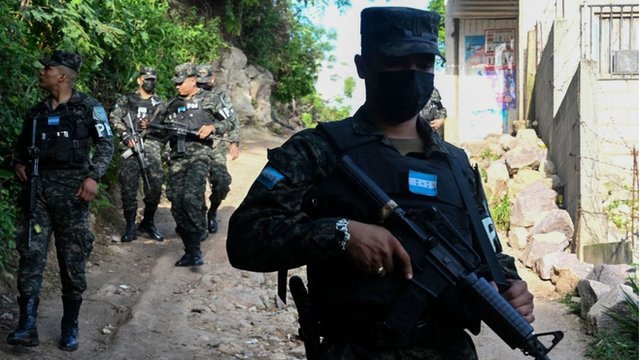
And faced with this situation, what role is the international community playing? Do you think they are giving it due importance?
I see the exception with the brutality of the Nicaraguan regime, which is an open and shameless regime that violates human rights, and which was denounced from the United States and from several countries in Europe and Latin America.
But we do not see that same forcefulness in the face of what is happening in El Salvador, much less in Guatemala.
And I think it is urgent that the international community see authoritarianism in these Central American countries as a regional problem, because even in others like Costa Rica there is already talk of whether it would be good to emulate Bukele’s state of exception, which absolutely violates all guarantees. in El Salvador, and which has also been emulated in Honduras.
What are the differences in treatment towards one country or another due to?
I think that, sadly, from the United States they privilege the immigration issue. So, while Guatemala, for example, fulfills its mission to curb human mobility, part of the US government is satisfied.
As for Europe, I think that the war in Ukraine has made them take priorities on issues that are geographically closer to their countries.
Although without a doubt, I believe that what happens in Central America, such as the upcoming elections in Guatemala, also ends up affecting both the United States and Europe.
Regarding the United States, which has historically called Central America its “backyard”, are there any changes in the relationship with the current government of Joe Biden?
Well, Donald Trump clearly embraced the corrupt presidents of Central America for prioritizing migration issues.
This shift in US foreign policy facilitated, for example, the expulsion of the International Commission Against Impunity in Guatemala (CICIG) and the Support Mission Against Corruption and Impunity in Honduras (MACCIH). That was very obvious.
I think that although in the Biden government there are voices that censure corruption and impunity and want to strengthen the democratic parts of these countries, there are other actions that are very contradictory.
For example, the signing of agreements on military aid, or not openly condemning people linked to corruption cases, or the persecution of honest officials.
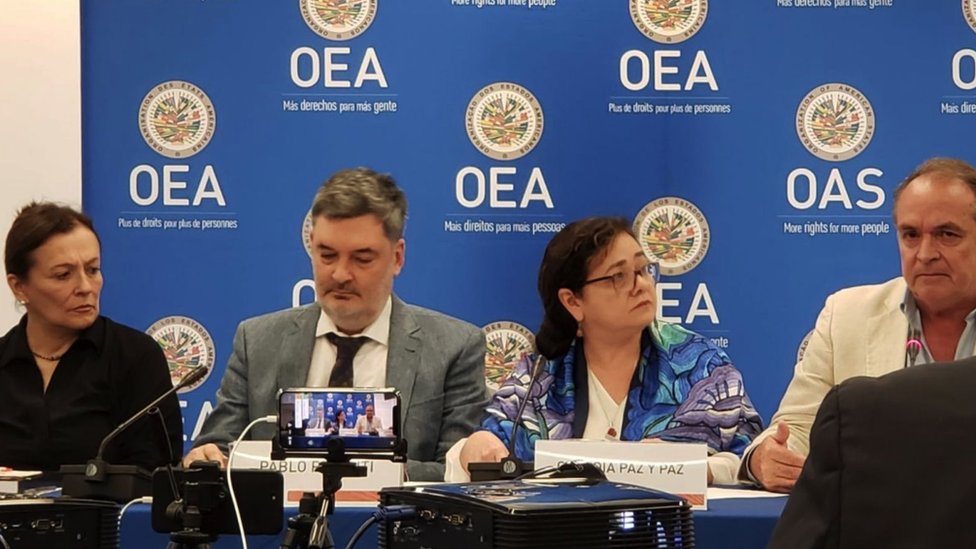
Are today’s governments and systems of Central America unable to guarantee justice and respect for human rights in their countries on their own? What is the formula so that international support is not seen as an interference with national sovereignty?
Right now, the judiciary in Nicaragua, El Salvador and Guatemala is completely subservient to the Executive and is used more to criminalize independent journalists and activists than to protect human rights.
I believe that we must bet on supporting civil society, democratic forces, the independent press that is still in the countries or that is sadly acting from exile.
And I also believe that what has been done with individual sanctions, both in the United States and in Europe, against people who benefit from corruption or have participated in serious human rights violations is important.
It is important that there be a consequence in the face of acting authoritarianly or blatantly against the State.
But these sanctions and the inclusion of corrupt officials in public lists do not seem to have much effect on these governments. Sometimes the same impression is given with sentences or recommendations from international organizations such as the Inter-American Court of Human Rights.
It does seem that governments like Nicaragua’s are in direct contempt of the Court’s resolutions. They don’t even answer.
But although it seems that it has no effect, let us remember the release of 222 political prisoners in Nicaragua in February, which had been ordered by the Court on several occasions.
I am not saying that it was only this order that caused it, there was also a lot of international pressure. But I do believe that international voices have an effect on these regimes, no matter how undemocratic their course may be.
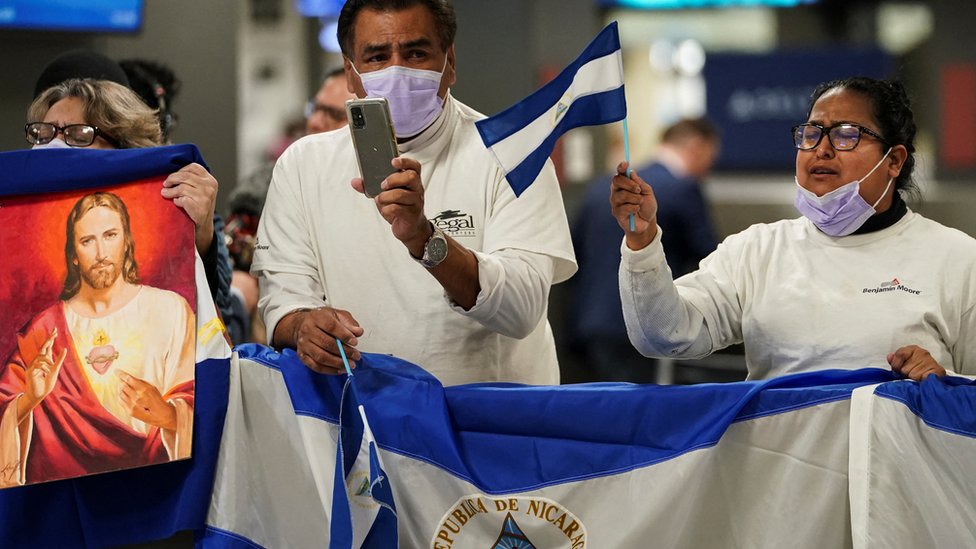
You yourself mentioned how in some Latin American countries the actions of Central American presidents like Bukele are beginning to be seen as a model. Do you think there is a risk that this authoritarianism will spread to the rest of the region?
I hope not! Let’s hope it doesn’t spread to other countries in the region where, unfortunately, their democracies are extremely fragile. I hope you don’t have these same problems in other countries.
Costa Rica and Panama, on the other hand, seem to be on the sidelines in this matter despite being part of Central America itself. Is that so, or are there also signs of concern about authoritarian tendencies that we miss?
I can tell you more about Costa Rica. And although the institutional framework here is much more solid than the rest of the countries, they do worry, for example, about the attacks on the press from the Costa Rican Executive.
But it must be noted that Congress fulfills its comptroller function, the Judiciary acts independently…. In other words, there is institutionality here.
What would be the main claim you would make to the Central American governments to curb this tendency towards authoritarianism?
More than them, I think the important thing is to call on the international community, which should not take its eyes off Central America because unfortunately this authoritarian regression is taking place.
And that he places his bets in favor of the democratic forces that exist today in the countries, or even in the countries or from exile.
With information from the BBC
